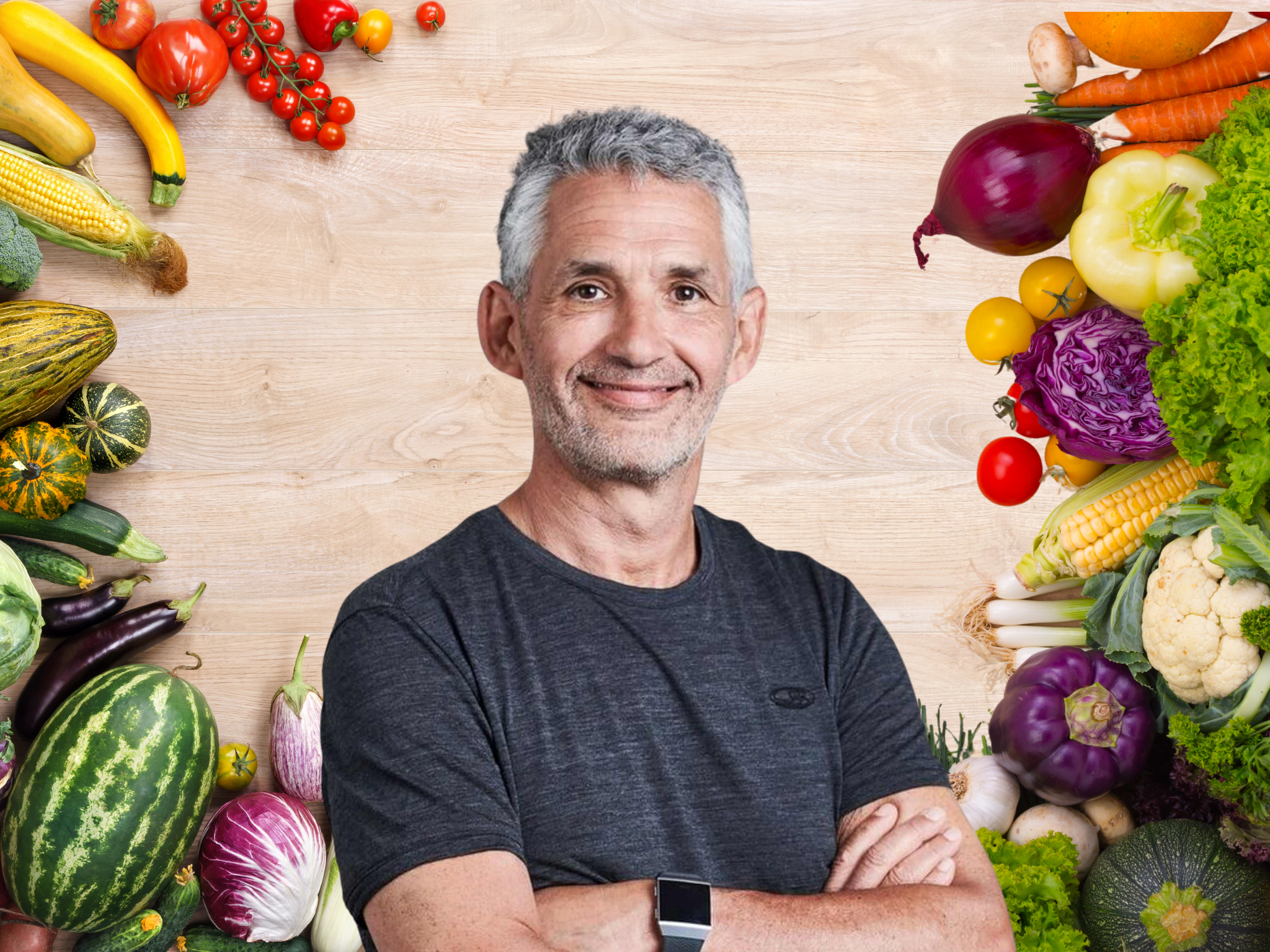Plant-Rich Diets Best for Microbiome Health, Shows Study by UK Gut Guru
5 Mins Read
Tim Spector’s health app Zoe analysed poop samples from over 21,000 people to find the best diet for the gut microbiome.
With gut health and GLP-1 drugs top of mind for many consumers in 2025, food and drink manufacturers are working overtime to come up with products that match these needs.
Medications like Ozempic work by replicating incretin, a natural hormone found in our bodies that boosts the GLP-1 hormone. This hormone can also be regulated by foods derived from fermentation and rich in dietary fibre, which have been exploding in popularity over the last year.
At the same time, meat consumption is on the rise, despite animal proteins containing little to no fibre. Red and processed meats have been linked to poor health, while eating a diverse range of plant-based foods has been associated with much better outcomes.
The gut microbiome, meanwhile, is crucial to our health, but there is little large-scaled research about the link between diets and gut wellness.
To find out which diet works best for the human guy, the team at personalised nutrition app Zoe – co-founded by author and academic Tim Spector – assessed stool samples of over 21,500 participants, the majority of which were omnivores. Just under 1,100 were vegetarians, and 650 were vegans.
Published in the Nature Microbiology journal, the study found vegans to have the healthiest diets on average – thanks to the presence of beneficial bacteria – followed by vegetarians and meat-eaters. Omnivores had a higher level of harmful bacteria associated with inflammation, poorer cardiometabolic health, colorectal cancer risk, and inflammatory bowel disease.
“We found that a plant-rich diet, particularly one high in a variety of fruits and vegetables, leads to a healthier microbiome composition, which is important for better health outcomes in the long run, including a reduced risk of chronic diseases,” said Spector.
Vegans found to have higher short-chain fatty acids

The researchers explored the quality of people’s eating patterns using the healthful plant-based diet index (hPDI), with a higher score meaning higher adherence to vegan eating. They also looked at gut microbiome alpha diversity, which describes how many types of bacteria are present in the gut.
While species richness was actually lower in vegans than in omnivores, they explained that alpha diversity is no longer a single measure of gut health, because while accounts for the number of bacteria, it doesn’t include the types of microbes involved. This means that someone can have a high number of bad bacteria, making their microbiome diverse, but not healthy.
Each dietary pattern was found to have its own signature. For omnivores, this was related to the consumption and digestion of white and red meats. A diet rich in animal protein leads to increased protein fermentation, and this may result in a leaky mucosa (the inner lining of some organs), inflammation and reduced production of short-chain fatty acids (SCFAs).
SCFAs aid the gut microbiome in a number of ways – they maintain the integrity of the intestinal barrier, facilitate mucus production, and protect against inflammation to reduce the risk of colon cancer.
The research found that vegans have a higher amount of bacteria that produce butyrate, an important SCFA that works against cancer and inflammation. A separate study recently found that a plant-based diet may raise butyrate levels in the body too.
These good bacteria ferment fibre in the gut, and help nourish your gut lining, lower inflammation, and maintain healthy blood glucose levels. And since fruits and vegetables are rich in fibre, the vegan signature also featured more bacteria species specialising in fermenting fibre.
Vegetarians, meanwhile, didn’t have as many harmful bacteria as meat-eaters, but the major difference between them and vegans was the bacteria emanating from dairy consumption.
Omnivores shouldn’t feel gutted

The results don’t necessarily spell doom for the omnivore gut. Individuals with high hPDI scores across the three diets shared some microbiome features. That means those following a healthy vegan diet had similarities with meat-eaters eating a high amount of plants, potentially giving rise to the flexitarian approach.
“Dietary factors within each diet pattern, such as the amount of healthy plant-based foods in one’s diet, generally transcend the impact of overall diet patterns on the gut microbiome and are important for gut health,” the study noted.
Its data showed that omnivores consume “significantly fewer healthy plant-based foods” than vegans or vegetarians, which limits the microbiome benefits seen in meat-eaters. “Optimising the quality of omnivore diets by increasing dietary plant diversity could lead to better gut health,” it added.
That said, most of the ranked bacteria found in vegan and vegetarian microbiome signatures were linked to better cardiometabolic markers, in sharp contrast to omnivores. The vegan bacteria, in fact, were significantly better than the species found in vegetarians (which had both good and bad health markers).
“This study underscores how important diet is in shaping the gut microbiome and our overall health,” said Spector. He has been a vocal advocate of adding more plants to your diet, famously encouraging people to eat 30 different plants a week – a message he further popularised in the Netflix documentary Hack Your Health.
Zoe, meanwhile, recently closed a $15M funding round to expand its operations in the US, where GLP-1 drugs like Ozempic and Mounjaro have taken over the food and health discourse. More than one in eight Americans have tried these weight-loss drugs now, and polling shows that two in five Ozempic users are intentionally increasing their plant protein consumption. Vegan meal delivery service Daily Harvest has jumped on this demand, offering a GLP-1 companion collection of dishes.
In the UK, where Zoe is based, the government announced a five-year trial in October for weight-loss drugs to combat unemployment with Eli Lilly, the US-based manufacturer of Mounjaro. Spector was also among 1,200 health professionals who urged the UK’s National Health Service to adopt a ‘plant-based by default’ approach in its hospitals.



